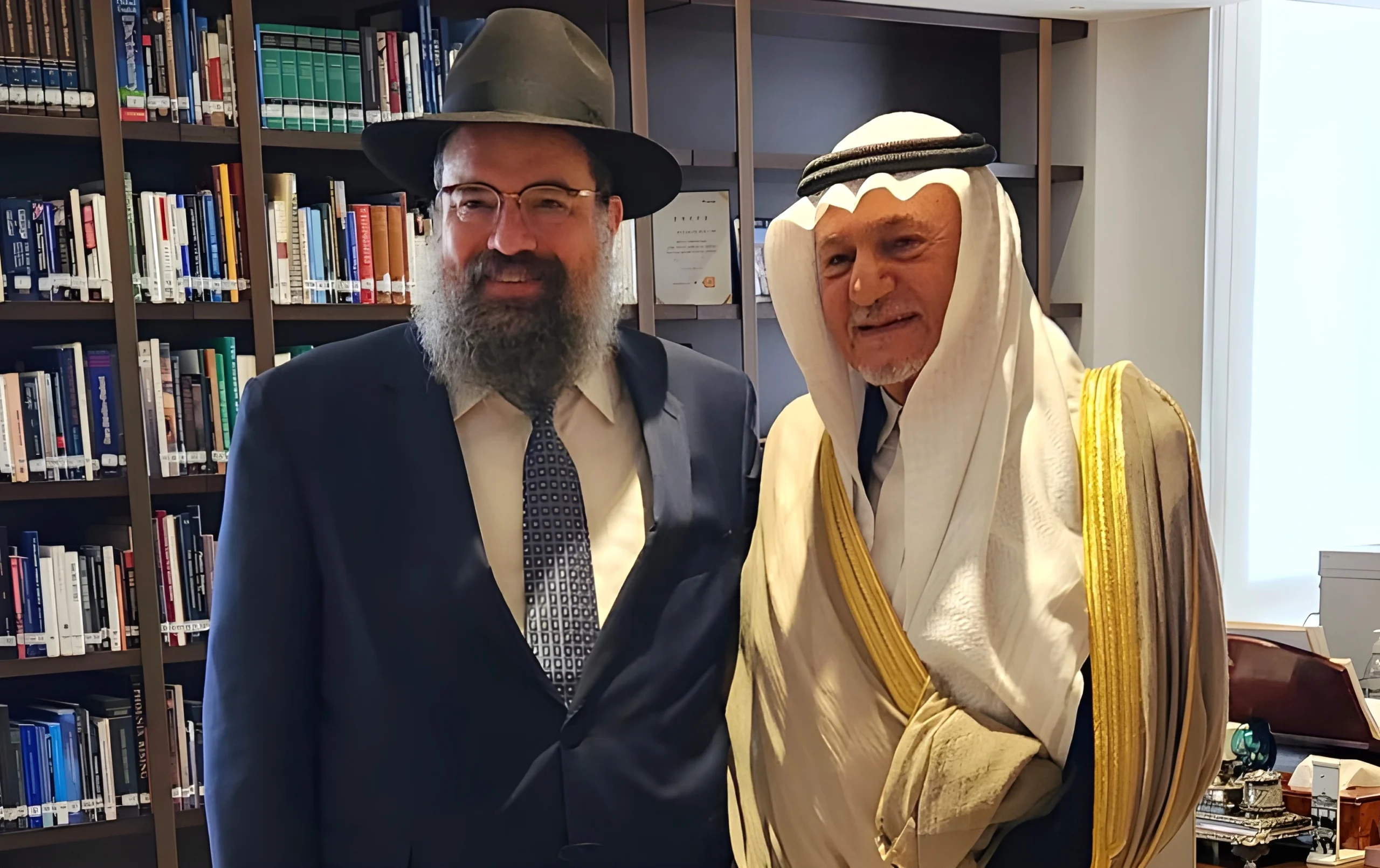Friday Features – July 18, 2025
Another “normal” news week in the Jewish world: a mini-war with the new Syrian regime; conflicting claims about the damage to Iran’s nuclear program; potential collapse of the Israeli government; and drama on U.S. college campuses. Next week, we could see an inflection point in the seemingly endless Gaza ceasefire & hostage negotiations. Visit JewishNewsWire.com 24/7 to catch-up and keep-up.
Beyond these top headlines, there are many fascinating, in-depth stories you may have missed. Let’s take a look at three.
1. The Incredible Story of a Reserve Battalion Arresting Iranian Quds Force Operatives Deep Inside Syria
Source: Yedioth Ahronoth, by Yair Kraus
A reserve battalion – hundreds of husbands, fathers, business owners and professionals – executed a meticulously planned mission, carried out in the pre‑dawn darkness of July 7, including silent river crossings, simultaneous house-to-house arrests, and rapid field interrogations – without a single shot being fired.

- The threat: The operation disrupted an Iranian terror cell operating near Israel’s buffer zone in southern Syria, spread out across numerous villages, plotting to sow chaos on Israel’s northern border.
- The significance: Reservist forces – battle‑tested in Gaza, Lebanon and Syria – are now fully capable of conducting elite-level missions, once the domain of commandos. “In the past, missions like this were the stuff of dreams for reservists,” said Lt. Col. “Y.”
- Total surprise: “Even when the terrorists arrived in Israel, they couldn’t believe the IDF had pulled them from bed, blindfolded them – and suddenly, they were here,” one soldier said.
- How they did it: Lt. Col. Y called it an “orchestra” of specialized units: the battalion’s manpower with other elite units – Unit 504 (interrogators), Unit 551 (mobility), K9 Unit Oketz, Air Force Unit 669, and aerial surveillance – after weeks of intelligence gathering by Unit 8200. “We operated like a well-oiled machine, battle-tested, alert and ready for anything,” said a soldier.
- Okay. But what did the reservists actually experience once the ‘Go’ order was given? “Each unit infiltrated the area using its own method,” said Lt. Col. Y. “We walked several kilometers silently on foot inside Syrian territory. The entire operation was timed to the minute, synchronized across all battalions and companies involved.
- And, they got a bit wet: One soldier recalled the initial stage: “We had to cross the flowing Rukad River. Our boots were soaked, the challenge grew – but we all smiled with satisfaction.” Another added: “The march itself was impressive. Hundreds of fighters moved in total silence – even the dogs barely barked.”
- The training was intense: “It required a long, meticulous preparation phase and a combat rehearsal process that was, let’s say, far from standard,” said Lt. Col. Y. ”On the eve of the mission, we had a full-scale rehearsal on a mock-up terrain that replicated the mission zone down to the smallest detail.”
2. Chabad’s Levi Shemtov: A Global Rabbi in the Capital of Power
Source: Jerusalem Post, by Alan Rosenbaum
In the 1970s, the Lubavitcher Rebbe sent Rabbi Abraham Shemtov to Washington, D.C. to: (i) advocate for Israel and the Jewish people; (ii) reach out to Jews in the federal government and Congress; and (iii) service the area’s Jewish community. In 1992, Abraham’s son, Rabbi Levi Shemtov, succeeded him, and remains in D.C. today. There, he has been a witness to history – and an active participant in it.

- The key to success: Simple: nonpartisanship, in the most partisan town. “We have very deep connections with the leaders of Congress from both parties in both houses and with administrations of either side,” Rabbi Shemtov said. “Many people who normally wouldn’t find themselves in the same room do so at our events. It gives people a rare politically transcendent opportunity where party submits to the mission at hand.”
- Early relationships with global Muslim leaders: Long before the Abraham Accords, Rabbi Shemtov nurtured relationships with Gulf and Saudi leaders. “I have found that an honest presentation of our essence is invariably met with respect as well as curiosity in the Muslim world,” the rabbi explains. “When we try to be overly apologetic, it doesn’t make as much of an impact as when you present things from a religious and historic perspective and the mutual benefits of peace between peoples – and I’ve been told this by many senior royals in the Gulf region and their diplomatic representatives.”
- A different approach to anti-Semitism: While he doesn’t minimize the dangers, Rabbi Shemtov suggests that if Jews are proud of their faith, know more about it, and are not afraid to display their Jewishness, they can better overcome anti-Semitic hatred.
- ‘Semitism’: “One of my main lines is that the greatest antidote to anti-Semitism is an informed and robust ‘Semitism,’” the rabbi explains. “We have to know and remember who we are. We have to give our young people pride in what it means to be a Jew, and the only way to do that is to teach them what a Jew really is.”
- Okay. So what does being a Jew mean in a proactive sense? “First, I tell them that they’re part of the chosen people and there’s no reason to apologize for it. Second, my father taught me that we’re not chosen to be privileged, but we are privileged to be chosen. It comes with the responsibility to live beyond yourself and make sure the world is a better place.”
- And one more thing: ‘Third, I tell young people, not to be afraid. The one directive we receive in the Torah more often than any other is not to be afraid.”
- Is Rabbi Shemtov optimistic about the Jewish future? “I sleep quite well when I think about Jews who are engaged. Since they have a deep sense of who they are and why, they are more inoculated regarding the onslaught of anti-Semitism. Those who are not affiliated, educated or observant, I feel, are much more susceptible to the virus of anti-Semitism.”
- Jews returning home: “We are living in very good times in terms of our renewed strength,” the rabbi concludes. “Our attendance numbers are through the roof, both in Washington and those of our colleagues, because so many Jews are re-embracing who they are.”
3. More Israeli Successes in Science, Technology and Business
The Weizmann Institute remains Israel’s symbol of science. Yes, an Iranian missile took out decades of research in scores of laboratories, including studies in the fields of cancer, heart disease, and how particles in the atmosphere affect climate and human life. Yet, despite the $600 million price tag, Israel vows to “build it back better.” Meanwhile, Israeli innovation continues unabated.

- Israeli scientists create digital AI twin that can predict diseases before symptoms appear: “If I track a person and collect all their baseline data, I can look for biomarkers that precede a later diagnosis,” said Dr. Smadar Shilo of the Schneider Medical Center. “That’s the ultimate goal – early prediction using AI-driven tools.” Read the full story.
- Israeli startup Exodigo sees and maps underground — it might also stop terror tunnels: Exodigo – valued at $700 million and involved in projects worth $75 billion – melds AI and sensor hardware to digitize subsurface mapping, reduce construction risks, and streamline megaproject workflows. And the crossover between civilian and covert defense applications also highlights Israel’s tech-military dual-use edge. Read the full story.
- Tel Aviv University & Sheba Medical Center develop artificial skin to help burn victims: Driven by the war, and the surging number of soldiers and civilians suffering from severe burns, researchers bioengineered skin that can double the healing speed for skin grafting and reduce infections. Read the full story.
- Israeli startup Apa Wellness aims to turn every pool into a “smart gym” for rehab and fitness: Asaf Ventura, severely injured in military service, found solace in aquatic therapy – driving him to co-found the company and reinvent water-based rehabilitation equipment tailored to real-life recovery needs. Modules attach via vacuum caps; sensors, AI, and app integration enable real-time tracking, guided workouts, and measurable progress. Read the full story.
